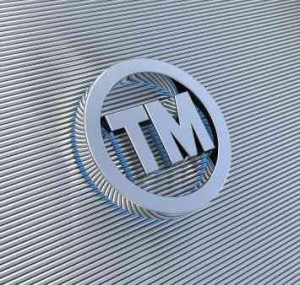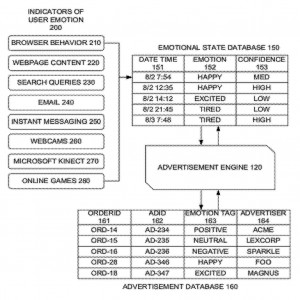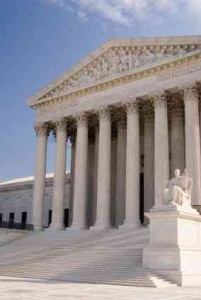
File this under bizarre trademark requests: Anthony Marshon Davis, a basketball player with the University of Kentucky, has applied to register two trademarks related to his eyebrows, or eyebrow as the case may be. Davis, who just completed his first season with the Wildcats is applying for protection of several phrases related to his overgrown eyebrows, or unibrow as he calls it.
The U.S. Patent and Trademark Office says Davis has filed an application to register “fear the brow” and “raise the brow.” Davis says he plans to use both phrases to market a range of products and services, including potential cosmetic lines, lunch boxes, clothing, entertainment, charitable services, sports training and even a website. Apparently there’s no end to the products a man can associate with his busy brows.
Apparently quite the savvy businessman, Davis says he doesn’t want anyone attempting to grow a unibrow because of him and then make money off of it. He says he decided to file for a trademark because a prominent athlete with a unibrow is unique.
He isn’t the first athlete to try and trademark a famous phrase. New York Knicks star Jeremy Lin recently applied to the “Linsanity” trademark, only five games into his memorable winning streak. NBA coach Pat Riley also filed for protection of his famous phrase “three-peat” after he coached the Lakers to two consecutive NBA championships. Sadly, Riley wasn’t able to make much use of the phrase given that he failed to win the third championship in 1989.
NCAA rules prevent athletes from financially profiting from athletics while in school which is why Davis has not filed the application himself. The University of Kentucky stepped in and helped out with the trademark request and is taking the matter quite seriously. The school’s associate athletic director in charge of marketing has already had to send out multiple cease-and-desist letters.
Only one problem stands in his way of a unibrow empire. Another man, John Salcido of Lexington, Kentucky (where the University of Kentucky Wildcats is based) filed his own application for “fear the brow.” His application came in November, seven months earlier than Davis’. Salcido says he wants to use the phrase to make and market a line of clothing.
Source: “Anthony Davis Trademarks ‘Fear The Brow’ Catchphrase,” by James Sunshine, published at HuffingtonPost.com.
See Our Related Blog Posts:








